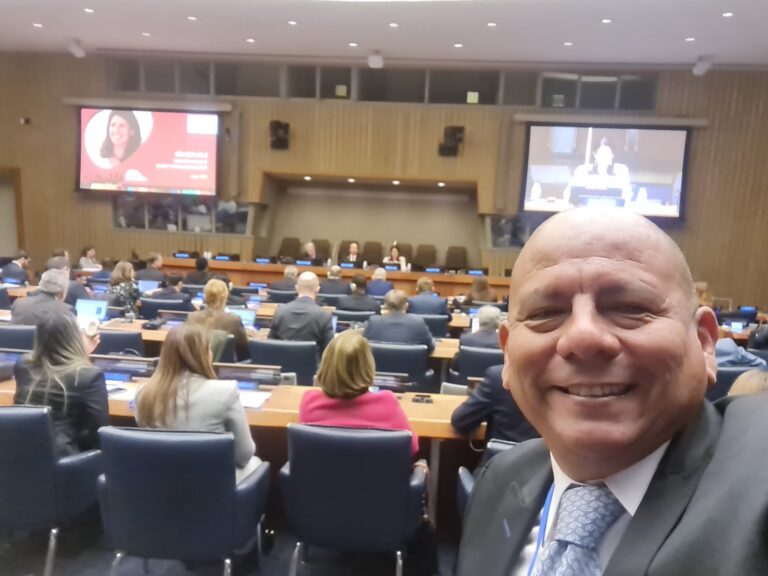Proponents of abortion in Latin America have developed clever new methods to advance their agenda. Some years ago they abandoned direct attempts to decriminalize abortion and make it legal. Instead, they move stealthily, step-by-step, to win the acceptance of the people for their schemes. We must learn to recognize their schemes for what they are, and be prepared to face them. A quote from a required textbook used in a university “women’s studies program” illustrates how their agenda has evolved:
Textbook teaching
Sexuality, especially abortion, was crucial in the 1970’s to manifest the problems that women faced, because the perception was focused on difference and on equality where the rights of the body were at risk. In the eighties and nineties women fully participated in international conferences and NGOs…Now in these last two decades, sexual and reproductive rights have doubled in dimension: as a theoretical characterization of the needs of women and an articulation of those demands.1
The radical feminists have not abandoned their primary goals (the legalization of abortion, the promotion of sterilization and contraception, etc.), but they have adopted a new name for their game: Sexual and reproductive right. Many people have been deceived by this new, “softer” approach, buying into the idea of “sexual and reproductive rights” without understanding what they are, in effect, accepting and approving a course that will lead inevitably to abortion on demand.
Examples
Let me cite an example. Several weeks ago, a group of poor, indigenous women were interviewed by a Peruvian TV program. They had participated in REPROSALUD, a program of the feminist organization “Manuela Ramos” and one which is funded by USAID. The women — obviously giving canned responses — said they were happy with the program because it had taught them to make other people respect their “reproductive rights” and now their husbands treat them very well. They were grateful to the program.
Then the representative of “Manuela Ramos” Susana Moscoso was asked to comment on the impact of the program on the women. Without hesitation she responded that REPROSALUD was “very successful.” Why? Because “the rate of contraceptive use had risen from 5% to 23% in that area.” Here the true thrust of the program was revealed. It was intended to drive down the birthrate and prepare the way for abortion.
How does this relate to abortion? First, contraception always leads to abortion. Second, Manuela Ramos has not abandoned its drive to legalize abortion in Peru, it has merely become more circumspect.
A Population Council magazine article entitled “Quality/Calidad/Qualite” explicitly says that members of “Manuela Ramos” in REPROSALUD, such as Susana Moscoso and others, “have had to sacrifice their chance to speak freely about abortion,” because the U.S. administration, urged by politicians opposed to abortion in that country, has reinstated a policy that prohibits funding of any program that provides or delivers abortion services or even promotes any reform related to abortion.2
Abortion Promoted
But if they occasionally have to bite their feminist tongues, they have invented a host of new ways to promote abortion without naming it as such. Let me list a number of the new ways in which abortion is being promoted in Latin America:
- The Committee on the Elimination of Discrimination Against Women (CEDAW) of the U.N. pressures countries to decriminalize abortion and legalize it by misinterpreting its own charter and falsely claiming abortion as a human right.
- The number of NGOs favoring “sexual and reproductive rights” is multiplying.
- The use of litigation, both international and national, either at the constitutional courts of Latin American countries or at the Human Rights International Court located in San Jose, Costa Rica.
- Relentless efforts to impose a gender perspective on public policy.
- Cosmetic semantic changes, such as changing “family planning programs” to the more innocuous-sounding “reproductive health programs.” As George Orwell said, “Those who would butcher the language eventually wind up butchering people.”
- Exerting influence over public policy and budgets through feminist and population control organizations.
- Drawing attention to “incomplete abortions” as a wedge issue to create a perceived need for surgery and medical services while continuing to push for abortion legalization.
- Misleading the public by exaggerating the numbers of maternal deaths and claiming a need to decriminalize abortion.
- Attacking the Catholic Church and her representatives on the grounds of “separation of church and state.”
- Urging Latin American parliamentarians to present “reproductive health” or “reproductive rights” bills guaranteeing “sexual autonomy,” “sexual orientation,” “gender identities and roles,” “sexual diversity,” and other such euphemisms to undermine legal protection for the unborn and weaken the traditional family.
- The legalization and over-the-counter sale of “emergency contraception,” often in conjunction with publicly- funded programs to promote the use of such abortifacient drugs.
While all of these strategies are relatively new to Latin America, they have been used for a decade or more elsewhere. It is important that we recognize what we are dealing with — a sustained and brutal attack upon life and family throughout the region — and that we respond in a timely fashion to each new attack with accurate and scientifically-based information. In this way, with God’s help, we will be able to successfully resolve pro-life crises in our region.
Endnotes
1 Quoted from “Footsteps of an Uncertain Future: From Abortion to Sexual and Reproductive Rights,” by Durand, Teresa, and Gutierrez, Alicia (Santiago de Chile, Chile, 1999).
2 “Quality/Calidad/Qualite,” Population Council Magazine, No. 10, 2001, page 16, see: HTTP://www.popcouncil.org/pdfs/qcq/qcq10sp.pdf.
Carlos Polo is Director of PRI’s Latin American office, located in Lima, Peru.










